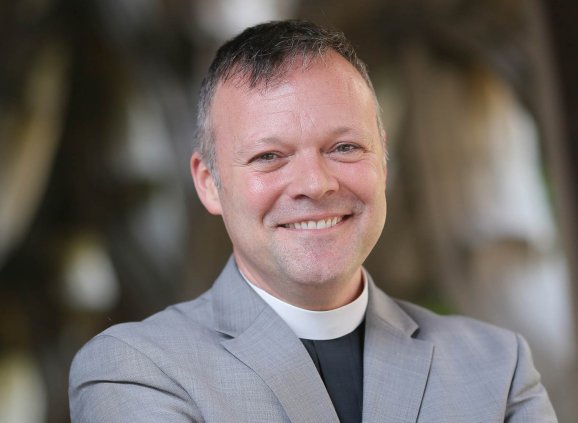
- Education Forums
Locked For Fear of the Jews

What makes a community? Is it charitable fellow feeling, shared interests and common goals? Or is something darker sometimes at work too?
In 1987, I lived for a year in San Francisco’s Castro neighborhood. A largely gay male community at that time, the Castro was then living through the grimmest years of the AIDS epidemic. Sick men my own age or only slightly older were everywhere in the neighborhood. In my college years, HIV had been a frightening abstraction. An idea. Here the words had taken on flesh. And I was living with that flesh, moved someplace beyond words by the compassion, bravery and tough, irreverent humor that life in the Castro seemed to be all about. I’d just landed and I wanted to learn all about my new community. So I went out a lot. And being a just-graduated English major, I read a lot. A newly published title that year, Frances Fitzgerald’s Cities on a Hill included a lengthy exploration of Castro-as-community. And she looked at three other American communities too: Jerry Falwell’s Liberty Baptist Church in Lynchburg, Virginia; a sunbelt retirement community in Florida; and a New Age commune built by the followers of Bhagwan Shree Rajneesh in central Oregon.
These four in Fitzgerald’s accounting held more in common than you might imagine. Fellow feeling, shared interests and common goals, of course. But each of these American “cities on a hill” also drew no small amount of convening energy from maintaining a certain idea of the “other.” Younger people. Non-believers. Straight people. Conservatives. Liberals. Each of the four had a very palpable idea of who was “outside” and hence a threat. Community building, Fitzgerald concluded, often has a deliberate dimension of “othering.” Fear of others exerts centripetal power, pushing community members towards a common center and holding them there. Political leaders at every point on the ideological spectrum know this dynamic and exploit it. A great deal of our current public discourse and amped social networking chatter is the consequence. I loved and will never forget the year I lived in the Castro, and at the same time I realize that Fitzgerald’s conclusions were spot-on.
Our Holy Week and Easter lectionary, of course, bears chilling traces of this power too. Both Jesus and Paul lived and died as observant Jews, and yet the gospel writers, writing for discrete communities, “other” the Jews to varying extents. You know what it is to holler “Crucify him!” in the assumed voice of “the Jews” on Palm Sunday. This past Sunday, John’s account of Thomas’ disbelief sets the stage in this way: “the doors of the house where the disciples had met were locked for fear of the Jews” (20:19). Historically, Christendom has rationalized hideous and systemic violence against Jewish communities through reference to this and other passages. Millions have died. Rivers have run red. This is why reflection, lamentation and repentance of our history belongs in Holy Week and Eastertide as much as our joy in the resurrection.
Considering all of this, it's our great good luck here at Trinity that Amy-Jill Levine will be a part of our Eastertide too. University Professor of New Testament and Jewish Studies at Vanderbilt, Levine has built her career -- as a scholar and writer of books for both children and adults -- on understanding Jesus in the context of Judaism. A self-described "Yankee Jewish feminist who teaches in a predominantly Christian divinity school in the buckle of the Bible Belt,” Levine offers an unforgettable and often generously humorous rebuke to those who would use scripture to justify exclusion. “You have a beautiful faith,” she once told a group of Episcopal clergy at a conference I was attending. “You don’t need to make Judaism look bad in order to make Christianity look good.”
Levine will be with us for two sessions on Sunday, April 22. You’ll not regret making time for both and can learn more about them here.
- January 2024
- December 2023
- November 2023
- October 2023
- September 2023
- June 2023
- May 2023
- April 2023
- March 2023
- February 2023
- January 2023
- December 2022
- November 2022
- October 2022
- June 2022
- May 2022
- April 2022
- March 2022
- February 2022
- January 2022
- November 2021
- October 2021
- September 2021
- August 2021
- July 2021
- June 2021
- May 2021
- April 2021
- March 2021
- February 2021
- January 2021
- December 2020
- November 2020
- October 2020
- September 2020
- August 2020
- July 2020
- March 2020
- February 2020
- January 2020
- December 2019
- November 2019
- October 2019
- September 2019
- August 2019
- July 2019
- June 2019
- May 2019
- April 2019
- March 2019
- February 2019
- January 2019
- December 2018
- November 2018
- October 2018
- September 2018
- August 2018
- July 2018
- June 2018
- May 2018
- April 2018
- March 2018
- February 2018
- January 2018
- December 2017
- November 2017
- October 2017
- September 2017
- July 2017
- May 2017
- April 2017
- March 2017
- February 2017
- January 2017
- December 2016
- November 2016
- October 2016
- September 2016
- August 2016
- May 2016
- April 2016
- March 2016
- February 2016
- January 2016
- December 2015
- November 2015
- October 2015
- October 2013
- September 2013
At "Educational Forums," enrich your spiritual journey by exploring our resources including videos of lectures, essays by priests, and other pieces about our faith, our church, and what it means to be a disciple of Jesus in the 21st century.


Comments